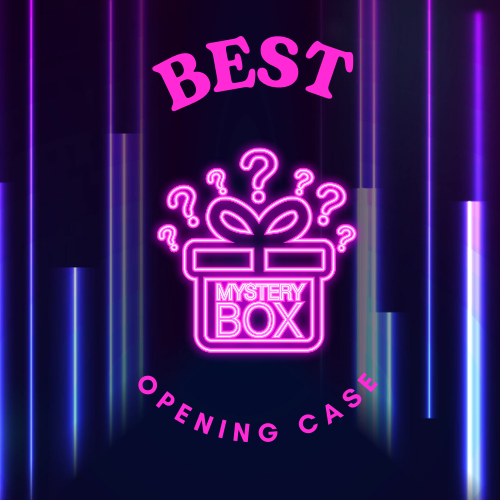
Mystery box platforms have exploded in popularity, offering users the thrill of surprise and the chance to win high-value items. However, alongside their rise, concerns about fairness, authenticity, and transparency have emerged. Many users worry about whether the odds are truly fair, if the items they receive are genuine, and if the platforms operate with integrity. Blockchain technology presents a potential solution, providing a system that could ensure provable fairness, immutable records, and enhanced trust between platforms and consumers.
One of the most significant advantages of blockchain in mystery box platforms is its ability to introduce provable randomness. Many users are skeptical about whether the outcomes of these digital mystery boxes are predetermined or manipulated. Traditional systems rely on centralized algorithms, which lack transparency and can be tweaked in ways unknown to the public. Blockchain-based smart contracts, however, can implement decentralized, verifiable random number generation (VRNG). This means that every time a user opens a mystery box, the outcome is determined by a publicly verifiable algorithm, making it impossible for the platform to alter or manipulate the results in their favor.
Another area where blockchain can provide improvement is in tracking and verifying the authenticity of items. A major issue in the mystery box industry is the uncertainty surrounding counterfeit or misrepresented goods. Some users have reported receiving lower-value items than advertised, or even fake branded products. By using blockchain-based supply chain tracking, mystery box platforms could provide an immutable history of each item included in their offerings. Each product could be registered on a blockchain ledger, documenting details such as its origin, authenticity, ownership history, and market value. This system would allow users to verify the legitimacy of their rewards, reducing concerns about fraud and increasing confidence in the platform.
Smart contracts also offer the possibility of automating and enforcing fair policies. One of the biggest frustrations among mystery box users is the perceived lack of transparency in payouts and refunds. Some platforms make it difficult to claim rewards, delay withdrawals, or impose hidden fees. With blockchain, smart contracts could ensure instant and automatic execution of transactions, meaning that once a user wins an item, the system would immediately process their claim according to pre-defined rules. This removes human intervention, eliminating the possibility of bias, manipulation, or unethical business practices.
Additionally, blockchain could introduce tokenized reward systems, enhancing both user engagement and trust. Instead of relying on traditional cash-out systems, platforms could implement cryptocurrency-based rewards where winnings are distributed via blockchain-based tokens. These tokens would have transparent value, be tradeable on open markets, and be immune to arbitrary devaluation by the platform. This approach would benefit users by giving them more control over their winnings, allowing them to exchange rewards without relying on the platform itself.
Beyond improving fairness and payouts, blockchain can address one of the most contentious issues in mystery box platforms: odds disclosure. Many users remain in the dark about how likely they are to win certain items, as platforms rarely disclose the exact probabilities of obtaining each reward. Blockchain-based systems could require platforms to store and display tamper-proof probability tables on a public ledger. This would ensure that users have full visibility into their chances, and any attempt to alter the odds after publishing would be immediately noticeable.
Mystery box platforms also face legal and ethical scrutiny, with many critics likening them to gambling due to their element of chance. Some governments have taken action against platforms that fail to provide adequate consumer protections or financial disclosures. Blockchain’s transparency could help these platforms navigate regulatory challenges by ensuring all transactions, odds, and payouts are publicly auditable. Regulators could access an immutable record of winners, payout frequencies, and platform earnings, proving whether or not the system is operating fairly. This added layer of accountability could also help platforms gain legitimacy in regions where they face regulatory uncertainty.
While blockchain technology presents clear benefits, its integration into mystery box platforms is not without challenges. One major hurdle is adoption and user education. Many mystery box users are unfamiliar with blockchain technology, and transitioning to a crypto-based system could create confusion or resistance. Platforms would need to implement user-friendly onboarding processes, including clear instructions on how blockchain verification works, how smart contracts determine outcomes, and how to use tokenized rewards. Without proper education, users may struggle to trust or understand the system, even if it’s designed for their benefit.
Another challenge is the cost and scalability of blockchain integration. Processing large volumes of mystery box transactions on a decentralized network requires computing power and transaction fees, which could make the system less efficient or more expensive than traditional centralized methods. While Layer 2 solutions and alternative consensus mechanisms (such as Proof of Stake) have improved blockchain scalability, mystery box platforms would still need to weigh the trade-offs between transparency and cost-effectiveness.
Security remains another concern, as blockchain-based platforms are not immune to hacks or exploits. While blockchain itself is considered highly secure, the smart contracts governing mystery box mechanics must be meticulously audited to prevent vulnerabilities. In the past, flawed smart contracts have been exploited in crypto projects, leading to financial losses for users. Mystery box platforms adopting blockchain would need to invest heavily in security audits, bug bounties, and continuous monitoring to prevent similar incidents.
Despite these challenges, some mystery box platforms have already begun exploring blockchain integration. The rise of NFT-based mystery boxes, where users receive digital collectibles on the blockchain, demonstrates the feasibility of applying decentralized technology to surprise-based commerce. Platforms that distribute real-world goods could follow a similar model by issuing NFT receipts or tokenized ownership proofs that provide users with an immutable record of their winnings.
Incorporating blockchain into mystery box platforms also has the potential to create secondary markets for digital and physical rewards. If every item obtained from a mystery box were recorded on-chain, users could resell or trade their rewards with complete transparency. This would open up new economic opportunities, allowing users to monetize their winnings with confidence that the legitimacy and ownership history of each item are verifiable.
The success of blockchain adoption in mystery box platforms ultimately depends on whether users value transparency enough to embrace decentralized systems. Many consumers participate in mystery boxes purely for entertainment, without scrutinizing the mechanics behind them. However, as awareness of fairness issues grows, demand for verifiable systems may push platforms to adopt blockchain to differentiate themselves from less trustworthy competitors. The platforms that prioritize transparency, fairness, and trustworthiness could gain a competitive edge in an increasingly scrutinized industry.
Looking ahead, mystery box platforms that integrate blockchain successfully could redefine the landscape of online unboxing experiences. They would no longer need to rely on good faith or vague promises of fairness; instead, every transaction, every randomized outcome, and every prize distribution could be mathematically proven and publicly verifiable. Users would no longer need to blindly trust platforms, as they could independently verify that their odds, winnings, and transactions are recorded in an immutable digital ledger.
Blockchain technology holds the potential to transform mystery box platforms from opaque, high-risk enterprises into trustworthy, provably fair ecosystems. By leveraging decentralized ledgers, smart contracts, and tokenized reward systems, these platforms could eliminate doubts about fairness, prevent fraud, and provide users with complete transparency over their gaming experience. As the industry evolves, those who embrace blockchain will likely set new standards for trust, security, and innovation in the world of mystery boxes.
